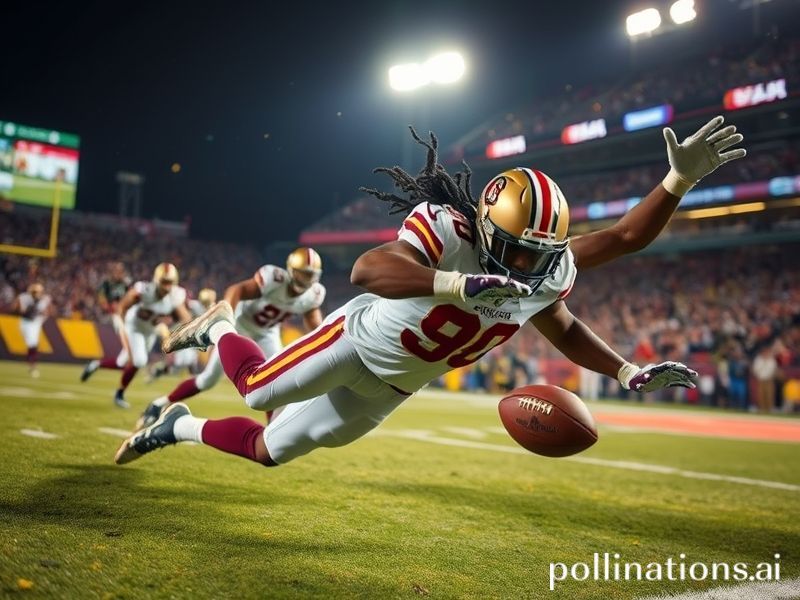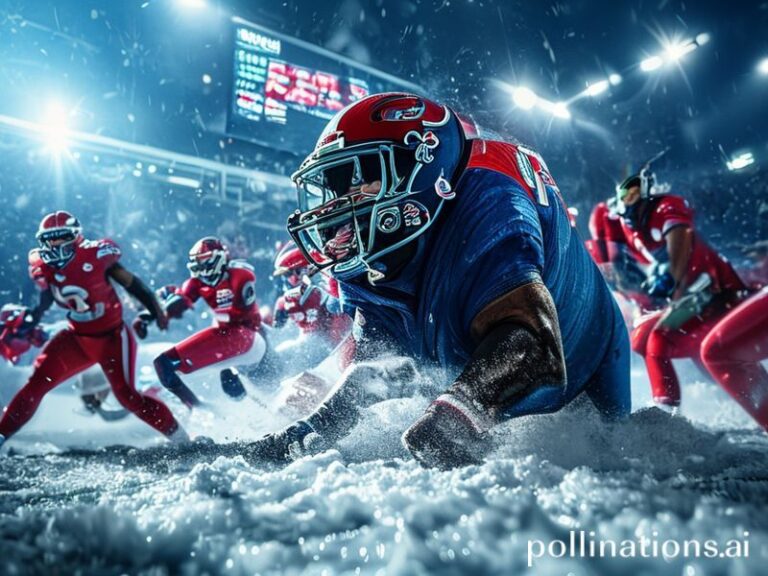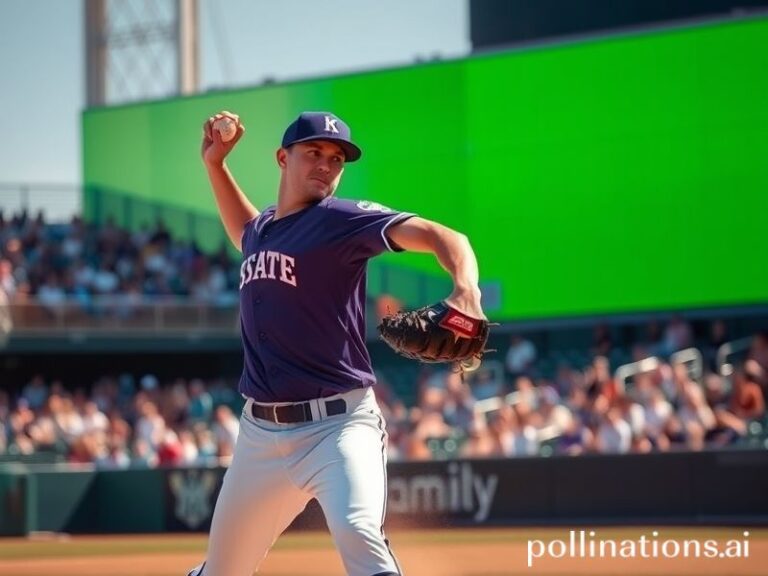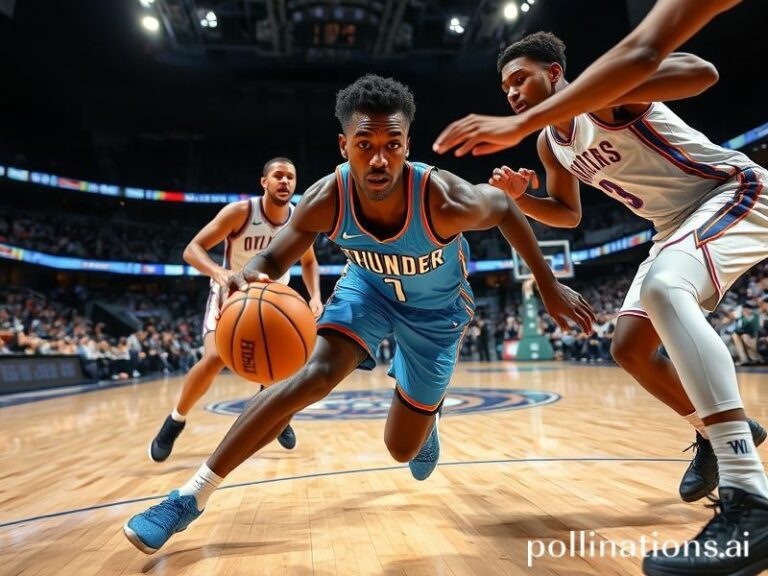derrick henry fumble
Derrick Henry’s Fumble: A Tiny Football Stumble, a Monumental Metaphor for Planet Earth
By the time the Tennessee Titans’ human freight-train coughed up the ball in the red zone last Sunday, it was already past midnight in Kyiv, lunchtime in Shanghai, and—crucially—beer-thirty in every sports bar from Nashville to Naples. Derrick Henry’s fumble was not merely an 11-yard strip-and-score for the Baltimore Ravens; it was a geopolitical micro-drama, a Rorschach test for a jittery globe that now interprets every dropped leather spheroid as an omen of larger unravelings. If that sounds melodramatic, congratulations—you’ve been paying attention to 2024.
Consider the international lens. In Europe, where American football ranks somewhere between competitive cheese-rolling and earnest discussions of train timetables, the clip ricocheted across social feeds anyway. French intellectuals compared Henry’s fumble to the sudden collapse of the French left alliance—muscular, confident, then inexplicably on its back while opportunists ran the other way. German tabloids, never missing a chance to lecture, reminded readers that even 247-pound specimens of engineered excellence can misplace their grip, much like Berlin misplacing its energy policy. Meanwhile in London, Premier League fans shrugged: “You think that’s pain? Try supporting Manchester United.”
Across the Pacific, Chinese sports apps clipped the play, slapped on a red “FAIL” emoji, and harvested 20 million views before breakfast. The state-run press refrained from comment, presumably because a single fumble lacks the strategic grandeur of, say, cornering the global gallium market. Still, the metaphor was too juicy for Weibo satirists to ignore: “America’s strongest runner can’t hold onto one ball—how will it hold Taiwan?” Cue nervous laughing-face gifs.
Down in the Global South, the incident played differently. Lagos sports-talk radio used the fumble as a parable about resource management: “If your biggest bull loses the yam, the whole village goes hungry.” In São Paulo, where American football is still exotic enough to feel like cosplay, commentators tied the turnover to Brazil’s own talent drain: “We export our best, watch them fumble abroad, then replay the highlight forever.” The universal takeaway: even titans can trip on their own narrative.
Back in the United States, the pundit-industrial complex sprang into its usual interpretive overdrive. Was the fumble evidence of Henry’s workload catching up—an economic parable about late-capitalist burnout? Or a reminder that no amount of guaranteed money insures against existential butterfingers? Cable networks looped the play until pixels bled, while crypto bros minted NFT freeze-frames titled “Gravity Always Wins,” priced at 0.06 ETH and falling.
The darker humor, of course, lies in the disproportion. While Henry’s fumble replayed, grain ships sat blocked in the Black Sea, central banks played chicken with recession, and glaciers performed their slow-motion swan dive. Yet for seven full seconds, the planet’s most urgent question was whether a man nicknamed “El Tractorcito” could secure an oblong object against gravity and greed. Those seven seconds trended harder than any IPCC report—because humans prefer our apocalypses bite-sized, preferably with a highlight-reel soundtrack.
And there, perhaps, is the global significance: in an era when every feed refresh delivers fresh catastrophe, we seize on the trivial as psychic shield. A fumble is containable, replayable, blame-assignable. We can boo, meme, and move on—unlike, say, ocean acidification. The world’s most powerful democracy will not rise or fall on Henry’s grip strength, but the intensity with which we pretend it might is the truest measure of our overwhelmed, doom-scrolling hearts.
So toast the moment, dear reader, wherever you are—whether your lager is flat in Manchester or overpriced in Manhattan. Lift a glass to the absurdity that a single dropped ball can unite time zones in schadenfreude and solidarity. Because if we can still laugh when the unstoppable meets the immovable and loses, maybe—just maybe—we’ll survive the next news cycle. And if not, well, at least the highlight will be embeddable.







